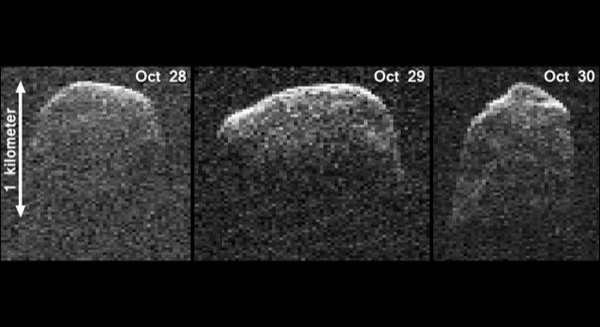Record-Breaking Asteroid Set To Pass By Earth This Month

An asteroid is about to give Earth a record-breaking close shave, as it comes closer to the planet than any asteroid has before -- even closer than many satellites.
The asteroid, 2012 DA14, is roughly the size of a football field and will pass extremely near Earth on Feb. 15, according to NASA. At its closest, the asteroid will be about 17,200 miles from Earth’s surface, closer than many telecommunications and weather satellites in orbit.
However, NASA insisted the asteroid will not make contact with Earth.
“This is a record-setting close approach,” Don Yeomans of NASA’s Near Earth Object Program at the Jet Propulsion Laboratory said in a video released by the U.S. space agency. “It will come interestingly close, closer than many man-made satellites.”
The asteroid will enter into low-Earth orbit for a time as it passes by the planet. Other objects at a similar distance from the surface include observational satellites and the International Space Station. Many satellites are even farther above Earth in geosynchronous orbit.
“The odds of an impact with a satellite are extremely remote,” Yeomans stressed. “Almost nothing orbits where DA14 passes the Earth.”
So what would happen if the asteroid did hit Earth? Not too much, really. Because the asteroid is fairly small, the damage wouldn’t be too extreme. Scientists believe an asteroid of similar size struck Arizona about 50,000 years ago, creating the almost 1-mile-wide Meteor Crater. While that asteroid caused a large amount of damage, DA14 would be different, even if it did strike Earth.
"That asteroid was made of iron," Yeomans said, "which made it an especially potent impactor."
Asteroids hit Earth about once every 1,200 years, and DA14 won’t be one of them, according to Yeomans.
© Copyright IBTimes 2024. All rights reserved.






















